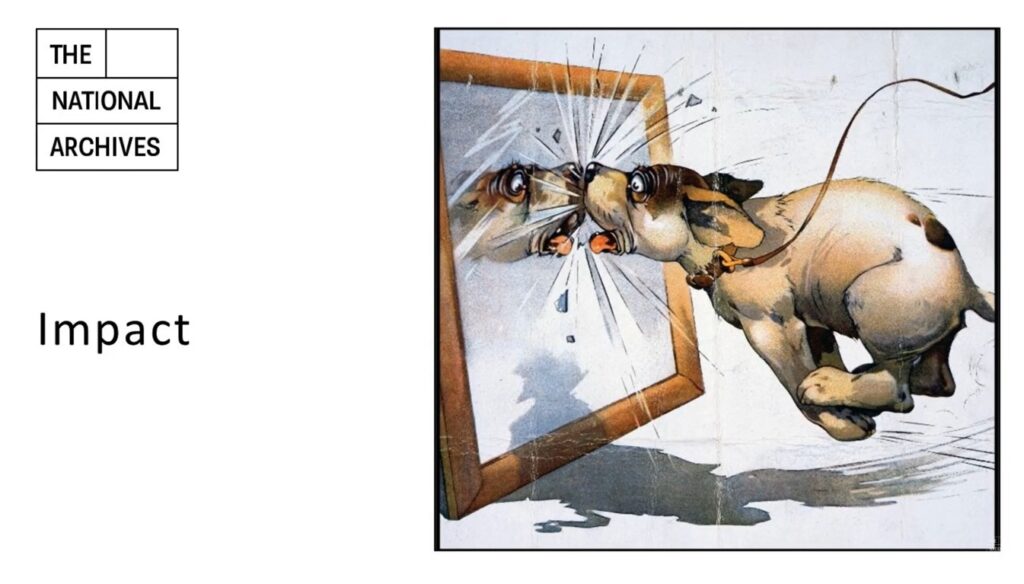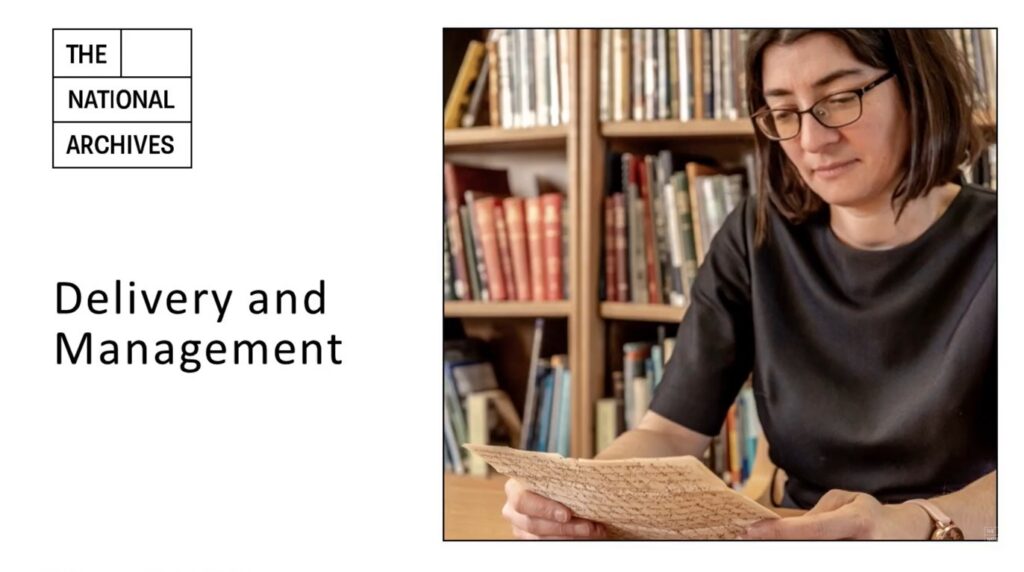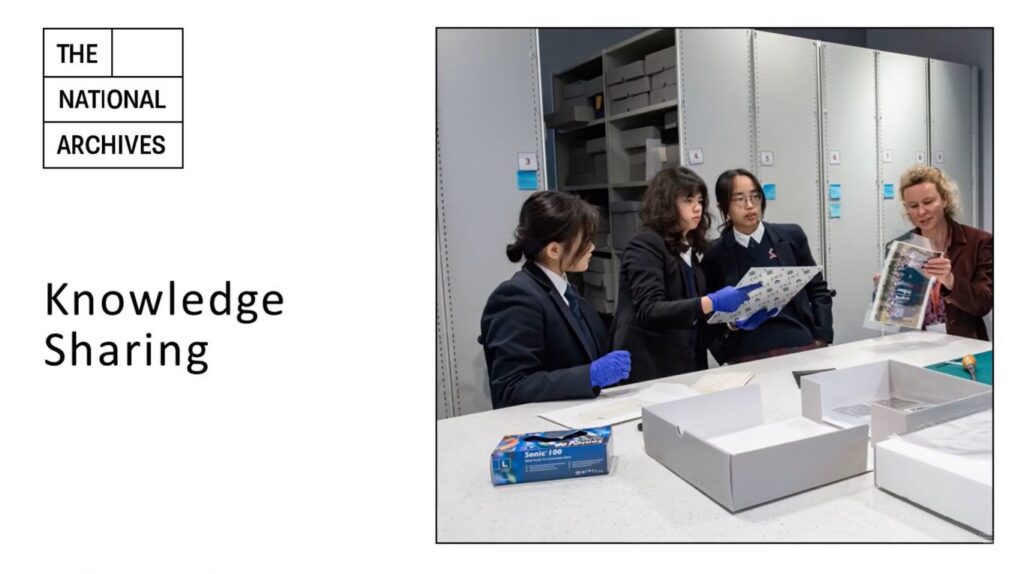Main section
This page provides detailed information on each of the Engagement Grant criterion. This information is not intended to be exhaustive: an outstanding answer may not cover all of the points mentioned, and/or may cover other points as appropriate to the applicant and their project.
1. Impact
We define impact as “the demonstrable contribution that a project makes.” Tell us why your project is going to change things: for you, for your archive service, for your users and audiences, for the archives sector, or for society. We want to understand what difference your proposal will make, and what change will result from the project, and for whom.
Ask yourself ‘what will happen?’ What are the short-term, medium-term and long-term changes that the project will bring about, and who will be affected? Is the change physical (new resources, materials or capital), procedural, or cultural?
Impact should scale according to the size of the grant being provided: for smaller grants, impact may be personal (new skills or learning), or institutional (such as improved ways of working within your archive service). For larger grants, strong applications will evidence impact beyond their own organisation. Please read the question carefully, to ensure that you are focusing your answer on the relevant areas of focus.
It is also important to consider the impact that your project will have on users of your archive. The users of archives can be diverse, with audiences having different motivations and needs from your service. You are best placed to understand who your audiences are, and who they could be: it might be helpful to explain the change you want to bring about, in how existing users interact with your service and collections, and/or in how you reach new audiences.
You may wish to outline how you intend to engage with audiences outside of your institution: do you have plans or partnerships in place, to engage with (for example) your local community, researchers, schools or higher education?
It is important to consider how the grant will have an impact beyond its own duration, and create a sustainable legacy of change: is this project part of a longer-term strategic plan, and how does it align with other activities or the future direction of the organisation?
Impact can take many different forms, and every project will have a different response: but a strong answer will always clearly outline what outcomes it is seeking to create, and how it plans to engage with beneficiaries and audiences, inside and outside of the archive service which is applying.
Watch our overview of how we consider ‘Impact’
2. Delivery and Management
When giving a grant, we need to be confident that it is possible to deliver every project that we fund, within the organisation and with the team you have available. Use this question to fully explain how you intend to carry out the project’s activities, spend its budget and achieve its delivery milestones.
We would like to understand in detail what you are proposing to do, who will deliver the project and what skills they have. Please tell us who has overall responsibility for the project, and who else is involved. Will you be working with a professional archivist? What types of posts do you need, and how are they paid? (You may wish to refer to ARA’s salary recommendations: Salary Recommendations from our Pay Review Group — Archives & Records Association). Are new staff being hired, or are you using existing staff; if so, how are their existing responsibilities being covered? Are you using volunteers, and how will they be managed and supported?
Please provide a rationale for any non-staff expenditure that you need to deliver your project, and how you plan to procure any resources you need, if you don’t have access to them already.
If your project involves multiple institutions, tell us how the relationship between the partners will be managed and governed, and how work will be divided and structured.
Tell us how you are going to manage your project, to ensure that it keeps on track – you may wish to attach a Gantt Chart or similar project planning tool, particularly for larger projects. In most grant programmes, we will ask you to outline at least three key milestones that need to be achieved to ensure your project’s success.
Finally, you may want to think about the risks that your project faces, and what mitigations you will be putting in place to address them.
Watch our overview of how we consider ‘Delivery and Management’
3. Knowledge Sharing
The National Archives has a leadership role for supporting the archive sector in England and across the UK, and often, we do this by knowledge sharing. Knowledge sharing refers to the ways in which understanding, experiences and learning and resources generated by our grant programmes are disseminated.
There are many more archives in the sector than we can provide funding to: therefore, we would like to understand, as part of your proposal, how you intend to disseminate the knowledge generated, both internally to your organisation and externally to your audiences and the wider archives sector.
There are numerous ways to share knowledge, which can be formal and informal. If your project is going to generate materials, such as guidance papers, toolkits or research publications, you may want to consider who the audiences are, what opportunities there are to share the materials, and how you can amplify their impact. You may wish to present at academic conferences, events or workshops. There are also more informal knowledge sharing activities, such as social media. Video or visual content may make your dissemination more accessible.
Networks are an important way of sharing knowledge and outputs: you will score highly on this question if you want to work with others, to collaborate on shared challenges or share results. There are many opportunities to form or participate in networks of common practice, and use these as a means to share learnings.
The National Archives will also offer opportunities for knowledge sharing, through learning outcome reporting, and events such as webinars. Please focus your response on activities delivered in addition to the standard grant requirements.


